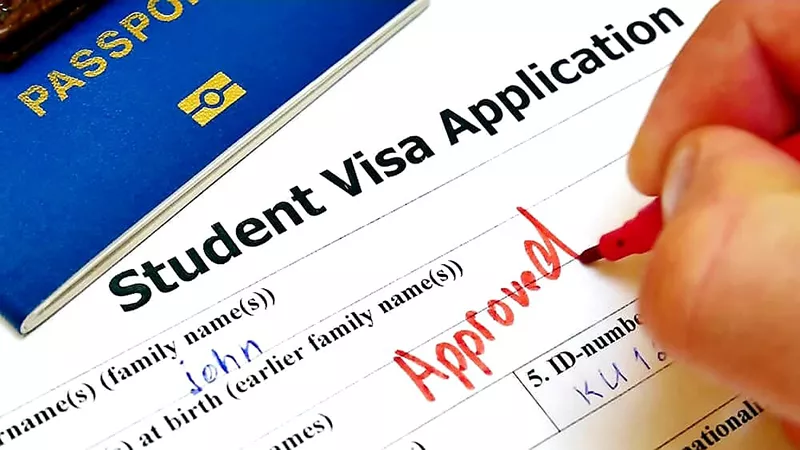Why Canada?

You need to get the right documents From Immigration, Refugees and Citizenship Canada
Reports of fraud against international students
International students who are victims of fraud will not be penalized.
Read the Minister’s full statement and learn how to report fraud.
You need these documents to apply for a study permit:
You may also need
Your school must send you a letter of acceptance. Include the original or electronic copy of your letter with your study permit application.
Conditional acceptance and prerequisite courses
If you’ve been conditionally accepted, you need to take prerequisite courses. For example, these might be English as a second language or French as a second language courses. You must complete these before you can start your main study program.
If this is the case, we’ll only issue your study permit for the length of those courses plus 1 year. Once you’re accepted into your main program, you’ll need to apply for a new student permit to extend your stay as a student.
Exceptions
If you’re the family member of someone who has a study permit or work permit application that’s been approved in writing before you come to Canada, you don’t need a letter of acceptance.
When applying for your study permit, you and each family member who comes with you to Canada must have
- a valid passport or travel document
- Online applicants: Upload a copy of the information page of your passport when you apply online.
- If you’re approved, you must send us your original passport.
- Citizens of the United States have some options on the identification documents they can carry.
- Lawful permanent residents of the United States must travel with a valid green card (or equivalent official proof of status in the U.S.) and a valid passport from their country of nationality (or an equivalent document).
- Online applicants: Upload a copy of the information page of your passport when you apply online.
- two recent passport-size photos
- The name and date of birth of the person should be written on the back of each photo.
You must prove that you can support yourself and the family members who come with you while you are in Canada.
You can prove your funds with
- proof of a Canadian bank account in your name, if you’ve transferred money to Canada
- a Guaranteed Investment Certificate (GIC) from a participating Canadian financial institution
- proof of a student or education loan from a bank
- your bank statements for the past 4 months
- a bank draft that can be converted to Canadian dollars
- proof you paid tuition and housing fees
- a letter from the person or school giving you money, or
- proof of funding paid from within Canada, if you have a scholarship or are in a Canadian-funded educational program
Minimum funds needed to support yourself as a student (and family members who come with you)
|
Outside Quebec |
||
|
Persons coming to Canada |
Amount of funds required per year (not including tuition) |
Amount of funds required per month (not including tuition) |
|
You (the student) |
CAN$10,000 |
CAN$833 |
|
First family member |
CAN$4,000 |
CAN$333 |
|
Every additional accompanying family member |
CAN$3,000 |
CAN$255 |
Example
If you and 2 family members want to come to a province (other than Quebec) for a year, you will need
- living expenses: $10,000 (for the student)
- living expenses: $4,000 (for the first family member)
- living expenses: $3,000 (for the second family member) Total: $17,000
|
In Quebec |
||
|
People coming to Canada |
Amount of funds required per year (not including tuition) |
Amount of funds required per month (not including tuition) |
|
1 person under the age of 18 |
CAN$6,569 |
CAN$547 |
|
1 person aged 18 or over |
CAN$13,134 |
CAN$1,095 |
|
2 people aged 18 or over |
CAN$19,264 |
CAN$1,605 |
|
2 people aged 18 or over and 1 person under the age of 18 |
CAN$21,579 |
CAN$1,798 |
|
2 people aged 18 or over and 2 people under the age of 18 |
CAN$23,290 |
CAN$1,941 |
If your country uses foreign-exchange controls, you must prove that you'll be allowed to export funds for all of your expenses.
This letter helps the visa officer to understand you and your goals. It explains
- why you want to study in Canada
- that you understand your responsibilities as a student
You should include this letter if you decide to apply for a study permit, even if you don’t have to get a study permit for your program.
If you want to study in Quebec for longer than 6 months, you need an attestation of issuance of your Quebec Acceptance Certificate (CAQ) issued by the Government of Quebec. Your school can tell you how to apply for the CAQ.
Find out about the process and the documents you need for studying in Quebec.
If you plan to study in Quebec for less than 6 months, you can apply for a study permit without a CAQ.
You may need a medical exam if any of these situations apply to you:
- You plan to stay in Canada for more than 6 months.
- You recently spent time in certain countries.
- You plan to work in certain jobs where public health must be protected.
If the minor requires a custodian, you must include the Custodianship Declaration form (PDF, 1.02 MB) with your application. It has 2 pages that must be notarized (certified by a notary) and then included with your study permit application.
The custodian in Canada must sign the first page, and the parents or legal guardians of the minor child in the child’s home country must sign the second page.
Check the visa office instructions for your country or region for local requirements.
If you aren't currently in your home country, you may have to prove your immigration status in the country you apply from.
If the government that issued your passport or travel document needs you to have a re-entry permit, you must get one before you apply for a Canadian visa. You may also need other documents.
If we request documents from you for an application in progress
- We’ll contact you to request the supporting documents.
- This will happen in the next few months.
- You’ll have 30 days from the date we contact you to submit the information.
- Start collecting your documents.
- Do this before we contact you. It can take time to get certain documents.
- Check the last email we sent you to confirm what you need to submit.
- Don’t travel to another city or country to get the supporting documents.
- We’ll consider extending your deadline if you have a reasonable explanation that shows you’re affected by COVID-19.


